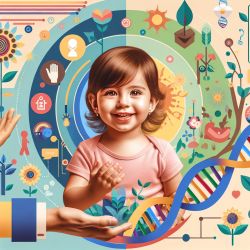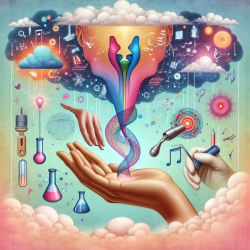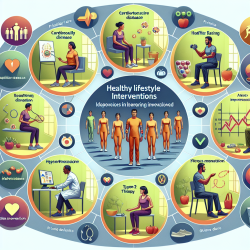Understanding the Power of Positive Affect in Toddlers
As practitioners dedicated to enhancing the developmental outcomes of children, it's crucial to understand the intricate relationships between positive affect, prosocial behaviors, and internalizing problems in toddlers. A recent study published in Frontiers in Psychology titled Positive affect: phenotypic and etiologic associations with prosocial behaviors and internalizing problems in toddlers offers valuable insights into these dynamics.
Key Findings from the Study
The study involved over 300 twin pairs aged three years and utilized various assessment tools to measure positive affect, prosocial behaviors, and internalizing problems. The findings revealed:
- Positive Correlation: Positive affect was positively correlated with prosocial behaviors and negatively with internalizing problems.
- Environmental Influence: The relationship between positive affect and both prosocial behaviors and internalizing problems was largely due to shared and non-shared environmental factors.
- Genetic Influence: The link between prosocial behaviors and internalizing problems was entirely explained by genetic effects.
Implications for Practitioners
Understanding these associations provides a foundation for developing targeted interventions that can foster prosocial behaviors and mitigate internalizing problems. Here are some strategies practitioners can consider:
- Enhance Positive Affect: Encourage environments that promote positive emotions. This can be achieved through activities that foster joy, laughter, and a sense of achievement in children.
- Focus on Environmental Factors: Since environmental factors play a significant role, creating supportive and nurturing environments both at home and in educational settings can be beneficial.
- Genetic Considerations: While environmental factors are crucial, understanding the genetic predispositions of children can help tailor interventions more effectively.
Encouraging Further Research
While this study provides a robust framework, it also highlights the need for further research into the genetic and environmental underpinnings of these associations. Practitioners are encouraged to delve deeper into these areas to refine and enhance intervention strategies.
By leveraging the insights from this study, practitioners can make informed, data-driven decisions that contribute to the holistic development of children. The ultimate goal is to create environments that not only enhance prosocial behaviors but also reduce the risk of internalizing problems, leading to healthier, happier children.
To read the original research paper, please follow this link: Positive affect: phenotypic and etiologic associations with prosocial behaviors and internalizing problems in toddlers.










